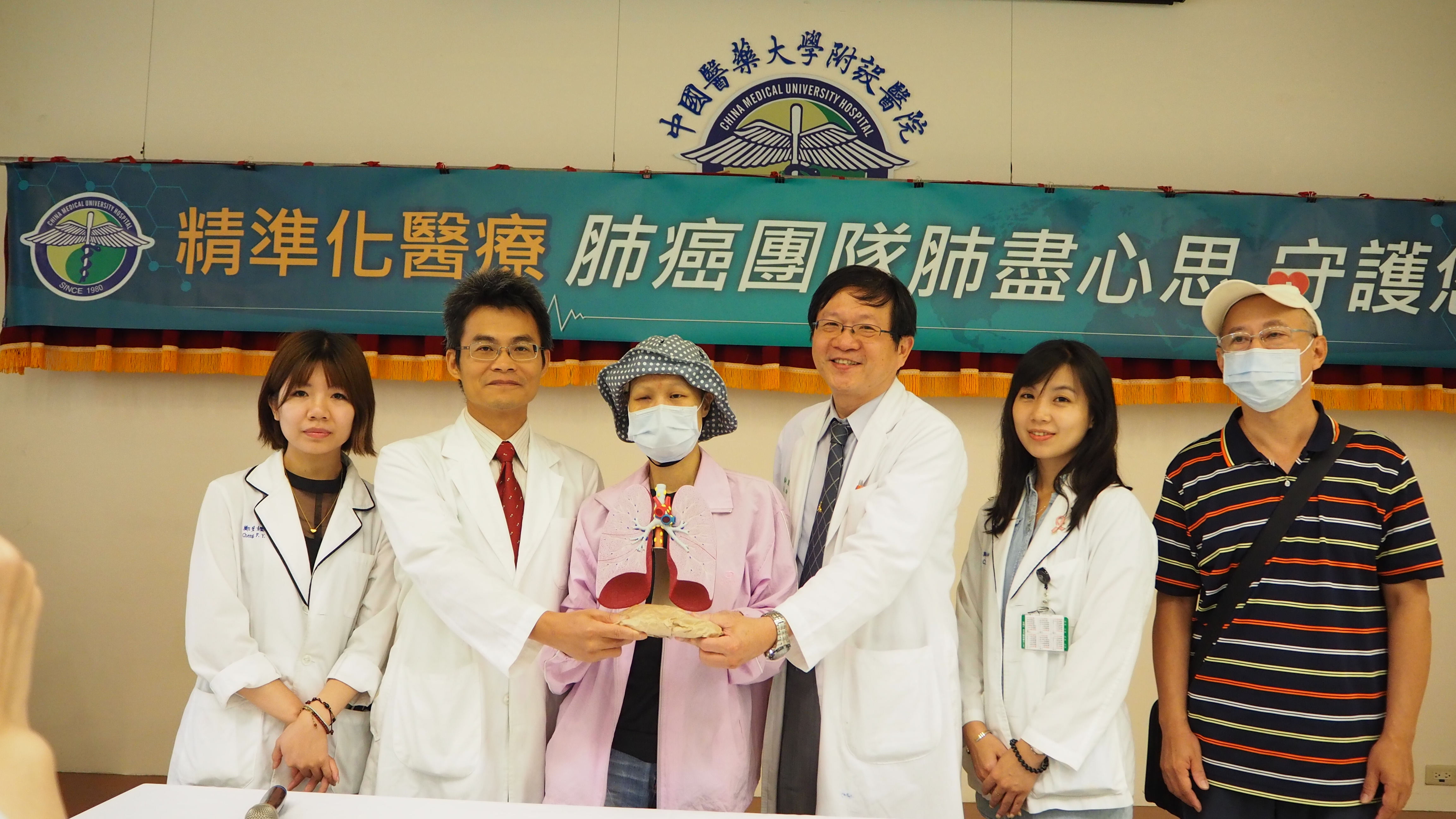News and Award
About CMUH
Higher precision and new progress in lung cancer therapy. Grasp the genetic mutation in carcinoma cells and choose more precise drugs for targeted therapy.

The Ministry of Health and Welfare recently announced the number of people died of lung cancer in Taiwan last year was 9,372 people, accounting for 5.4% of cancer mortality. Many people are worried that lung cancer is becoming the new national illness of Taiwan.
Targeted therapy and precision replacement of new drugs treat lung cancer more effectively.
Current available treatment for late-stage lung cancer includes chemotherapy, radiation therapy, targeted therapy, and immunology treatment, where targeted therapy is one of the most popular approaches. CMUH Department of Internal Medicine Deputy Director Te-Chun Hsia indicated that the targeted therapy has 75% response rate in late-stage lung cancer patients but the patients must be tested with tissues of lung cancer in order to validate the relevant genetic mutation, adding more effectiveness to such type of drugs. However the effective schedule is usually one year and even shorter before the cells undergo genetic mutation of carcinoma cells. At this time, the best approach would be to implement lung cancer biopsy to validate the mutation model before selecting effective treatment method based on the results. In other words, targeted drug must be adjusted in response to the genetic mutation of carcinoma cells in order to reach better treatment effect.
Ms. Tsai is a typical case. At the beginning due to the special genetic mutation, she used the targeted therapy related to such genetic mutation. However after some time, the drug losses effect and the reason is that the carcinoma cells produce new anti-drug mutation. The second biopsy test confirms a new genetic mutation and hence needs to change to new targeted therapy. Ms. Tsai has changed to different targeted drugs and now her disease condition is controlled.

Blood and body fluid tests the genetic mutation in carcinoma cells while genome sequencing test improves lung cancer prevention
Te-Chun Hsia stated that the response rate for chemotherapy is approximately 40% if the effective drug is chosen based on the cell type of the patient's lung cancer. Radiation therapy for late-stage lung cancer can only improve symptoms, so-called local treatment. It is expected to reach new breakthrough and development with the intervention of proton or heavy particle therapy in the future.
Additionally, the testing of genetic mutation in carcinoma cell during targeted therapy process usually requires repeated biopsy. However such approach does not necessary acquire proper specimen, which also increases the danger for patients constantly. Currently the test on new genetic mutation using patient's blood or body fluid has been developed, which could be said to have reach further progress in terms of understanding for the progress of disease condition and treatment choice. Now the concept of second-generation genomic sequencing using blood drawing can be applied to detect the relapse of lung cancer early or help patients customize more precise therapy.
Due to the rapid development in artificial intelligence, now the big data model can be applied to help physicians and patients make choice of therapy through computer robots. Or the database can show which new clinical experiences are carried out in order to select the clinical experiments suitable for patients to participate. Moreover, the results of second-generation genomic sequencing can be integrated to help patients pick the best therapy model. CMUH has established the precision medical center to integrate test, pathological experts and clinical physicians in attempt to provide better treatment for lung cancer patients.
CMUH Department of Internal Medicine Deputy Director Te-Chun Hsia



![[Taiwan–Malaysia Medical Innovation Forum] CMUH and UNIMAS Co-Host Major Medical Symposium to Advance Medical Technology and Precision Patient Care img](/FileUploads/News/20250714_131324.jpg?w=250&h=180&mode=crop&scale=both)